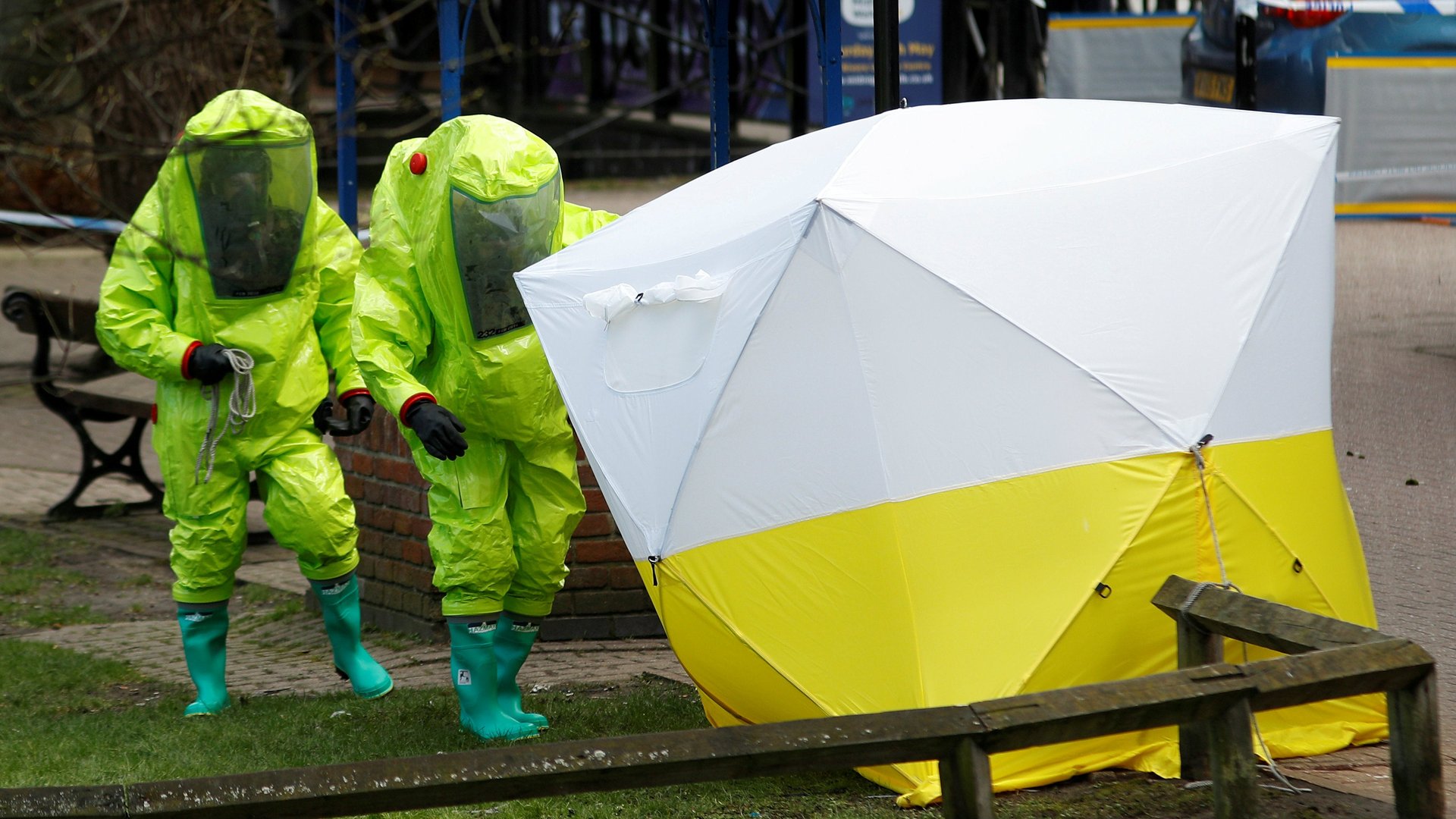We’re about to learn if Britain’s claim that Russia poisoned the Skripals is true
Diplomatic relations between Russia and the West haven’t been this frosty since the Cold War. A meeting today of the Organization for the Prohibition of Chemical Weapons (OPCW) could determine whether they get even chillier.


Diplomatic relations between Russia and the West haven’t been this frosty since the Cold War. A meeting today of the Organization for the Prohibition of Chemical Weapons (OPCW) could determine whether they get even chillier.
The group will consider the poisoning of former Russian double agent Sergei Skripal and his daughter, Yulia, who were found slumped on a bench in the center of the British city of Salisbury on March 4. Shortly thereafter, the British government confirmed that the poison used in the attack was the military-grade nerve agent Novichok, developed by Russia. It was delivered in an area where hundreds of people could have been exposed.
Russia considers the insinuation that it was involved in the poisoning as a “provocation.” A tit-for-tat expulsion of Russian diplomats from Western countries and Western diplomats from Russia has ensued.
The independent assessment of the OPCW will be vital for backing up the British government’s claims. Outside chemical experts have claimed that Novichok could only be produced on one site in Russia. However, scientists from the UK-based Porton Down defense research laboratory could not definitively establish that the nerve agent was made in Russia.
Meanwhile, when Yulia Skripal was released from hospital this week, the Russian embassy in the UK demanded to meet with her, as well as “urgent proof that all actions in relation to Yulia are being taken in strict observance of her free will.” Sergei Skripal remains in care—but no longer in critical condition— and will be released “in due course,” according to the Salisbury hospital’s medical director.